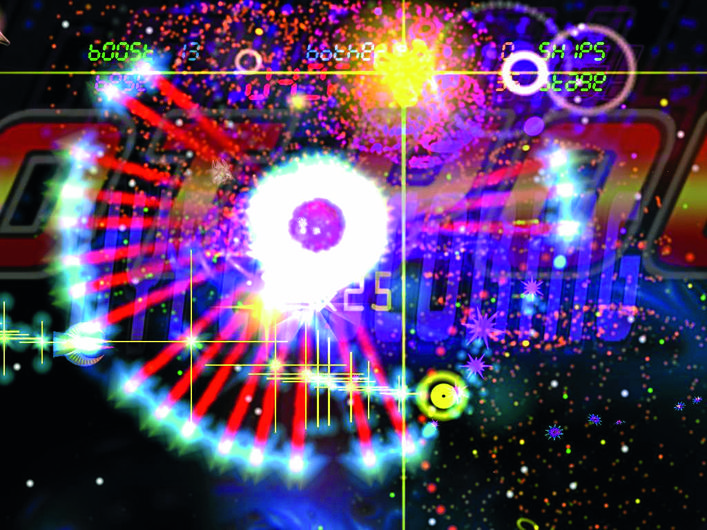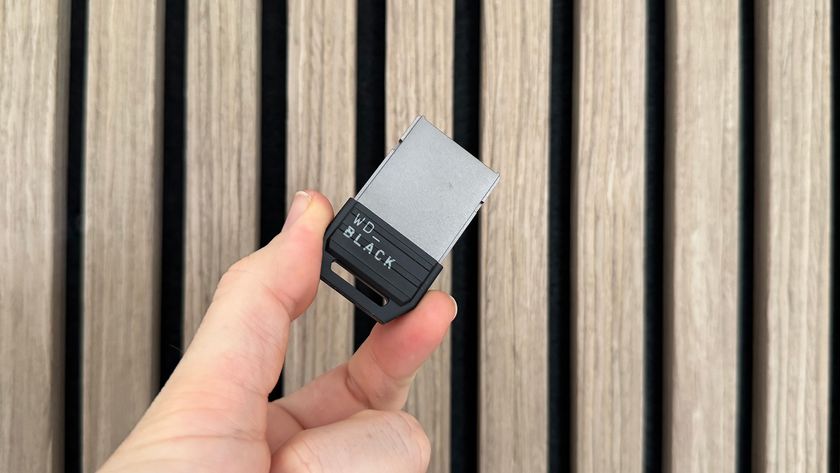12DOVE Verdict
Pros
- +
Trippy visuals
- +
Inventive scoring mechanics
- +
Risk/reward gameplay is exciting
Cons
- -
Scoring can be unclear
- -
Survival feels random sometimes
- -
Tactics become less important in later levels
Why you can trust 12DOVE
Llamasoft’s previous game, Space Giraffe – decried as obtuse by some, but adored by others – failed in one aspect: it didn’t sell enough. A single-screen psychedelic shooter, Gridrunner Revolution is designed to bring Llamasoft back from the farther fringes of development. Ostensibly created to be more readily understood, with simpler core mechanics, it still bears the hallmarks of Jeff Minter’s style: pulsing neon and warped sound-cues punctuate stages as the player guides their auto-firing ship away from rivers of deadly light.
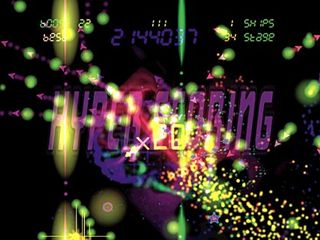
On the face of it, it’s a standard, albeit eye-bursting, shooter. Enemies in the form of neon-hued lines advance towards your craft; it’s your job to destroy them before they touch you. Your craft autofires, cutting down on trigger-finger cramp, and can change direction with a mouseclick. Then the ‘aesthetic’ scoring system is unveiled. Each level has a ‘sun’: a moving point of light spewing pretty but lethal projectiles. Knock these out of action and they turn into black holes. These are important.
Regular shots yield points, but swirling, spinning streams of ordnance bent around the gravity well of a collapsed sun multiply that total hugely. A high-scoring trajectory is a beautiful thing to behold, but it can be tough to identify exactly why you’re doing well (or badly). Huge, complex patterns can produce puny score multipliers, while unimpressive spirals sometimes do the opposite.
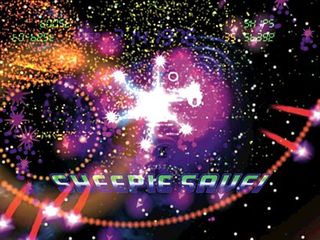
Then the game adds ‘sheepies’ – power-ups in the form of pixellated sheep. Collect one, and your weapons are upgraded, but they have another use. Death brings a few seconds of semi-controllable spinning: land on a helpful sheepie before dropping from the screen, and you’ll reincarnate.
The decision to initiate a ‘sheepie save,’ waiting near a power-up rather than collecting it immediately, is an exciting risk/reward mechanic, but on harder settings can end up as less of a conscious choice. When things get really tough, it’d take the mind of an atomic superman to keep tabs on the sheepies – they become less of a strategy, and more something you might get lucky and land on.
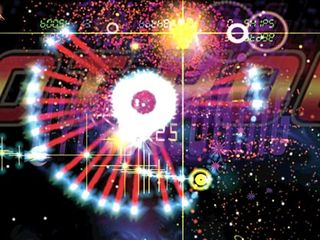
Strip the context, and you’d never guess the developers had intended to make a simpler game. Design discussions are easily imagined: “And let’s add this! And this!” The result is as visually impressive and inventive, but can lack the feedback necessary to make the player feel they’ve mastered the mechanics. With such a mass of variables, Gridrunner feels subjective and sometimes unfair, its aesthetic scoring subject to the woolly whims of an idiosyncratic judge, rather than the cold heart of a machine.
Oct 8, 2009
More info
| Genre | Shooter |
| Description | With such a mass of variables, Gridrunner feels subjective and sometimes unfair, its aesthetic scoring subject to the woolly whims of an idiosyncratic judge, rather than the cold heart of a machine. |
| Platform | "PC" |
| Alternative names | "Gridrunner+++" |
| Release date | 1 January 1970 (US), 1 January 1970 (UK) |
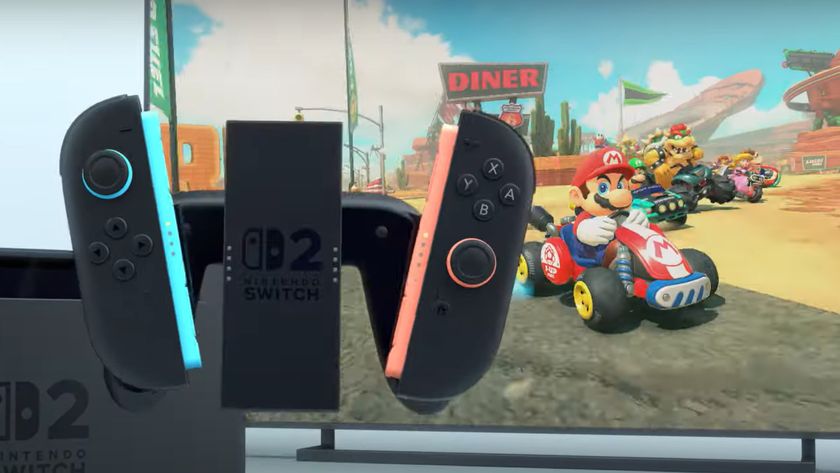
Ex Nintendo PR managers say the Switch 2 generation is likely to see the retirement of "several of the major developers at Nintendo who we have known for 40 something years"
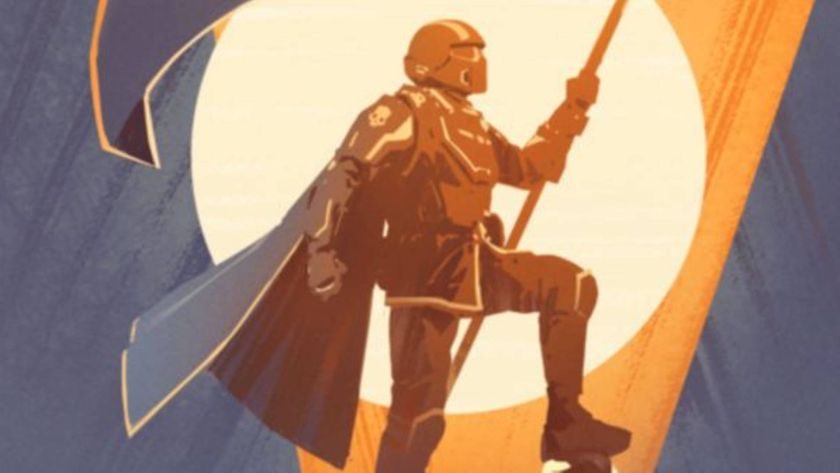
Helldivers 2 CEO says industry layoffs have seen "very little accountability" from executives who "let go of one third of the company because you made stupid decisions"

Spider-Man: Brand New Day - How Peter Parker and Mary Jane's break up led to one of the wall-crawler's most transformative comic eras
